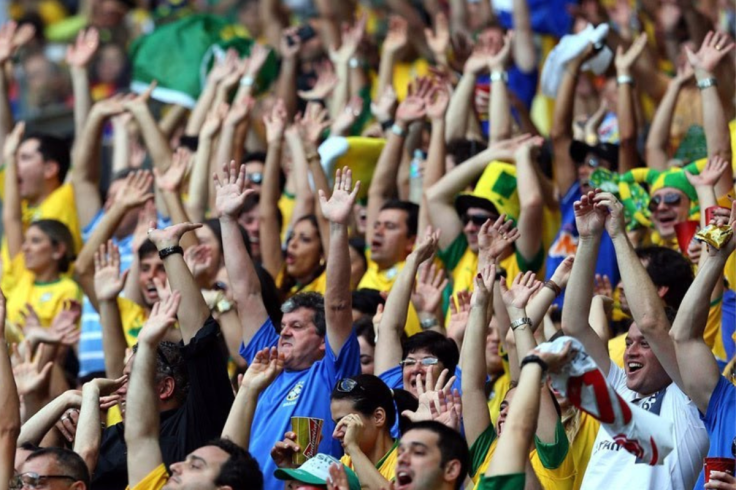Football Fans Outraged as FIFA Resale Tickets Skyrocket 445% — and You'll Lose 30% in Fees
FIFA's official platform pockets £23 per £100 transaction, while cheapest World Cup seats jump from £8 to £44, pricing out many fans worldwide

FIFA has transformed itself into the world's most profitable ticket reseller, generating revenues previously held by scalpers through an unprecedented 30% fee structure on its official 2026 World Cup resale platform.
The governing body charges both buyers and sellers a 15% commission on each transaction. This means FIFA takes £300 ($390) from a £1,000 ($1,300) ticket resale, leaving the seller with just £850 ($1,105) and the buyer paying £1,150 ($1,495).
This marks a significant departure from past tournaments, where FIFA capped resale prices at face value and charged combined fees of around 10% or less. Now, the organisation's model appears to prioritise revenue over accessibility.
The Business Model Behind the Backlash
Launched in October 2025, FIFA's resale platform has already listed tickets at eye-watering prices. A Category 4 seat for the final at MetLife Stadium, originally sold for £1,487 ($2,030), now commands an astonishing £18,340 ($25,000) on FIFA's site.
Even more stark is the increase in the cheapest group stage seats. Prices have skyrocketed from £8 ($11) at Qatar 2022 to £44 ($60) for 2026 — a 445% rise that effectively prices out many working-class supporters globally.
According to an analysis by Eurovision News Spotlight, some semi-final tickets in Dallas are listed at nearly £703,410 ($959,394). Standard stadium seats are also commanding prices into the hundreds of thousands, making the tournament increasingly inaccessible.
FIFA's strategy aligns with its ambitious £9.5 billion ($13 billion) revenue target for the 2023-2026 cycle, nearly doubling the £5.6 billion ($7.6 billion) generated during Qatar 2022. The organisation previously defended variable pricing as 'competitive', claiming it reflects North American market norms.
Vertical Integration of Ticketing Markets
Unlike previous World Cups, where third-party platforms like StubHub dominated resales, FIFA has effectively verticalised the entire ticketing ecosystem. By operating both primary and secondary markets, FIFA captures revenue at every transaction stage.
'FIFA is taking £23 ($30) for every £100 ($130) exchanged on the platform,' said Thomas Concannon from the England Fans' Embassy. 'At previous World Cups, combined fees were closer to 10%. This is unprecedented.'
This business model mirrors controversial dynamic pricing strategies employed by Ticketmaster and other entertainment giants, which have faced antitrust scrutiny. The US Department of Justice sued Ticketmaster in 2024 for monopolising ticket sales.
Staggering Costs for Supporters
For fans hoping to follow their team through the tournament, costs are mounting rapidly. A Category 4 ticket from the opening match to the final could cost at least £2,331 ($3,180) before FIFA's resale fees — more than twice the cost at Qatar.
With the 30% commission included, a fan buying four resale tickets at £1,000 ($1,300) each would pay £4,600 ($6,000) in total, with FIFA pocketing £1,200 ($1,560) in fees alone.
The resale platform operates without price caps in the US and Canada, though Mexico's regulations enforce face-value-only resales. This creates a two-tier market: American and Canadian fans face unlimited markups, while Mexican supporters receive consumer protections.
Political and Economic Fallout
The pricing controversy has sparked political backlash. New York Assemblyman Zohran Mamdani launched the 'Game Over Greed' campaign, calling on FIFA to end dynamic pricing and reinstate resale caps. 'Most New Yorkers will be priced out of watching the biggest sporting event in the world in their own backyard,' he said.
The Football Supporters' Association described the prices as 'astonishing' and 'unacceptable'. Fans Europe accused FIFA of turning the tournament into 'a World Cup for middle-class Westerners and the fortunate few from the rest of the world.'
Despite operating as a non-profit organisation, FIFA's monetisation strategy has effectively turned the world's most-watched sporting event into a luxury product, raising fundamental questions about football's accessibility and the priorities of its governing body.
The 2026 tournament, expanding to 48 teams across 104 matches in the US, Canada, and Mexico, begins on 11 June at Mexico City's Estadio Azteca.
© Copyright IBTimes 2025. All rights reserved.





















